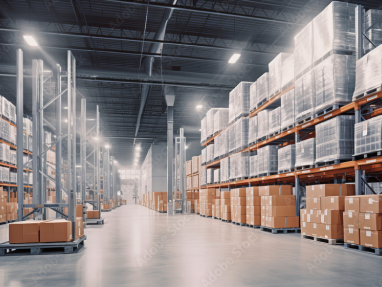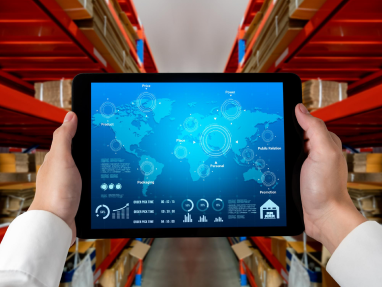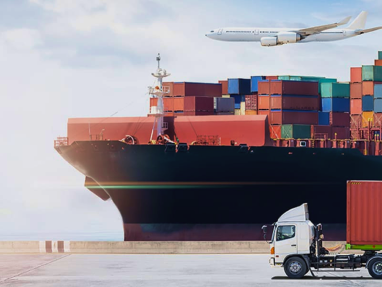Mexico, boasting the second-largest economy in Latin America after Brazil, has attracted numerous manufacturing operations, including automotive parts manufacturers, due to its geographical advantages and trade facilitation through the USMCA (formerly NAFTA).
However, the import and export of raw materials, components, and finished goods require navigating Mexico's complex customs procedures. These procedures can often become a bottleneck, leading to shipping delays and unexpected costs.
This article will delve into the unique customs landscape and current logistics situation in Mexico.
Table of Contents
1. The Business Environment in Mexico
2. Unique Customs Practices in Mexico
3. Suzuyo's Logistics Services in Mexico and Advantages
4. Summary
The Business Environment in Mexico
Bordering the world's largest consumer market, the United States, Mexico is a prominent manufacturing hub. With free trade agreements (FTAs) with over 50 countries, Mexico actively engages in international trade. Combined with relatively low labor costs and a large workforce, these factors have attracted numerous multinational corporations to establish operations in the country.
However, Mexico's logistics landscape presents unique challenges. The complexity of its customs procedures requires meticulous management, making smooth logistics coordination crucial for businesses operating within the country.
Unique Customs Practices in Mexico
Customs procedures in Mexico have distinct characteristics compared to Japan and other countries.
1. Customs Broker System
One of the most notable aspects of Mexico’s customs process is its customs broker system. Only native-born Mexicans (naturalized citizens are excluded) are eligible to obtain customs broker licenses, a privilege historically passed down through families. While reforms to customs laws in 2013 relaxed the rules for obtaining these licenses, the tradition of inheriting these rights remains common, effectively limiting foreign logistics providers from acquiring customs licenses for self-managed operations.
Although Mexican law allows companies to register in-house legal representatives to handle their own import and export declarations without brokers, most businesses still rely on customs brokers for these procedures.
2. Previo Inspection
A key step in Mexican customs clearance is the “Previo” inspection, where customs brokers conduct a voluntary physical inspection of goods. This process ensures that the declared documentation matches the actual cargo, as discrepancies are heavily penalized under Mexican customs law. Penalties can include steep fines, suspension or revocation of the importer’s license, and even the broker’s credentials.
Given that both importers and customs brokers share equal responsibility for accuracy, brokers often take precautions by inspecting goods at ports prior to clearance. However, this inspection can lead to challenges such as cargo damage during unpacking or extended lead times due to the sheer volume of goods being processed. While optional, the Previo inspection is commonly integrated into the standard customs process.
3. On-Truck Customs Clearance and Random Inspection System
Customs clearance in Mexico operates as an “on-vehicle” process, with final clearance approval confirmed as cargo exits the customs gate. After taxes are paid and a broker arranges cargo pickup from the terminal, trucks enter the customs area and proceed to the signal inspection stage.
At the signal inspection gate, trucks pass through a traffic light system that randomly displays red or green lights. A green light signifies the completion of customs clearance, and the cargo is allowed to leave the port. A red light triggers a customs inspection, which may involve document checks, container/cargo inspection, or other procedures as instructed by customs officials. Only after completing the required inspection process and receiving approval from customs can the cargo leave the port.
If selected for inspection, processing times can vary significantly depending on port congestion, potentially leading to extended lead times. Additional costs, such as handling fees and trailer waiting charges, may also arise. 
Suzuyo's Logistics Services in Mexico and Advantages
1. Total Import/Export Customs Clearance Support
At Suzuyo, we work with local partners to provide seamless import and export customs clearance services. As previously mentioned, it is virtually impossible for foreign logistics providers to obtain customs licenses for self-managed operations in Mexico. However, by leveraging our strong network of trusted local partners, we can not only deliver logistics services but also offer reliable customs clearance support.
In Mexico, customs brokers are limited to handling up to four customs offices per license (one broker per license). Despite this restriction, Suzuyo’s collaboration with multiple customs brokers ensures we can effectively manage customs clearance across a wide range of key regions.
2. One-Stop Service Solutions
We offer a one-stop service that provides comprehensive support for all aspects of your supply chain, encompassing not only customs clearance but also transportation, warehousing, and distribution. Typically, pre-clearance procedures and customs processing can be time-consuming, often leading to extended delivery lead times. Our integrated approach eliminates the need for separate coordination with multiple transportation providers before and after customs clearance, significantly reducing cargo transit times.
By entrusting us with the entire process, we gain access to crucial cargo information in advance, enabling seamless information sharing with all relevant parties and efficient coordination of all logistical arrangements. Many of our clients already benefit from our complete one-stop service, encompassing everything from import/export customs clearance to final delivery.
Summary
Mexico's customs system is unique and can appear complex to companies operating within the country. However, Suzuyo's team possesses in-depth knowledge of Mexican customs procedures, local logistics conditions, and relevant regulations, allowing us to provide seamless support from customs clearance to final delivery. This enables our clients to navigate complex customs processes smoothly and optimize their logistics operations.
If you have any concerns regarding importing or exporting to/from Mexico, or if you are interested in our logistics services, please do not hesitate to contact us.





